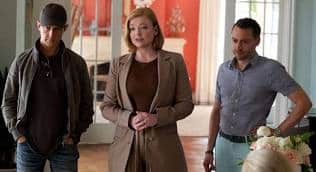In Being Mortal (Metropolitan books, 2014), Atul Gawande wrote « There’s no escaping the tragedy of life, which is that we are all aging from the day we are born. » Actually, when it comes to aging, I think the psalmist spoke even more starkly: The sum of our years is 70, or if we are strong 80, and most of them are toil and trouble, for they quickly pass and we vanish. (Psalm 90:10).
Well, I haven’t quite vanished yet, but I am now fully halfway between 70 and 80. That’s three-quarters of a century! (And what a century!) Meanwhile, the inevitable end is that much nearer, but how near no one knows! In any case, the point of living is not when one’s life will end but how to live until then. Thus, when he turned 80, Pope Saint John XXIII gave thanks that he had « not yet entered upon helpless old age, » even while recognizing being « on the threshold » of life’s final phase, « in which restrictions and sacrifices await. » That said, then four years into his papacy « with an immense program of work in front of me to be carried out before the eyes of the whole world, which is watching and waiting, » he chose to identify with Saint Martin of Tours, of whom it was famously said, Nec mori timuerit, nec vivere recusarit (« he neither feared to die nor refused to live »). [Journal of a Soul, August 10 and 15, 1961].
Well, now, I am obviously not pope, and I have a much more modest program of work before me, which hardly anyone anywhere is watching. Even so, what better spirit in which to approach the joys and sorrows, the opportunities and diminishments of old age!
First of all, however, I give thanks on this most special day for the gift of life – a life like so many other lives perhaps not as well lived as it might have been but at the same time I b better lived than it might otherwise have been. Perhaps not every choice has been the best. Obviously not every opportunity has been taken fully advantage of. But the big picture has been gotten right enough, so that in life’s inevitable mixture of gratitude and regret, the scale of life has been weighed ultimately more with the former over the latter, the more so the more this long life lasts.
Thus, I find myself increasingly attracted to this aspiration of the great 20th-century resourcement theologian Yves Congar: I entrust myself to the GRACE OF GOD: yes, to so gracious a mercy that, punished for our sins, we are not destroyed thanks to the Mercy of God. To live SOLELY BY GRACE, without any reassuring human support, that is the rule that I rely on. God does not deceive us, although his grace is often puzzling. [My Journal of the Council, August 1963]
Puzzling indeed! When I revisit the story of my life, its twists and turns, its catastrophic failures and thankful recoveries, merely puzzling may seem a most modest way to describe it all.
Puzzling still, as the pace slows, as I experience the increasing infirmities of age! According to his own account, Congar, at an even younger age than I am now, seems to have been in far worse physical condition – even while he accomplished so much more than I ever have or will. Congar’s My Journal of the Council is replete with repeated references to his ailments, that make him sound so overwhelmed with pain and weakness that one wonders how he accomplished even half of what he did. His account warns me to resist the perennial temptation to turn in upon oneself (incurvatus in se, according to Augustine’s memorable phrase), but instead to keep the focus beyond myself, and so to keep on going as far as I can push myself to go, to accomplish whatever may yet be in me to accomplish.
Physical ailments and increasing weakness will likely inevitably become one’s steady companions in old age. But chronic illness and physical weakness only highlight the even greater stress of loneliness and isolation. Again, Congar captured the feeling well (when himself only 59), recalling King David’s experience. I well understand David’s need of Abishag: not for her fleshly presence, but for her presence itself. … I am longing to be back in contact with men and women, with friends. The worst thing about old age has to be the isolation. [My Journal of the Council, November 3, 1963]
The only sensible alternative to secular, generational despair has to be a religious hope, what my moral theology professor in seminary used to like to call the primary Christian virtue. Hope, however, has its own challenges. However limited one’s life experience may have been, by age 75 anyone has seen enough of life and the world for worry to overwhelm hope. It may be the most basic life challenge of all – at any age – to overwhelm worry with hope. Yet that is the great task of living – even at 75.




